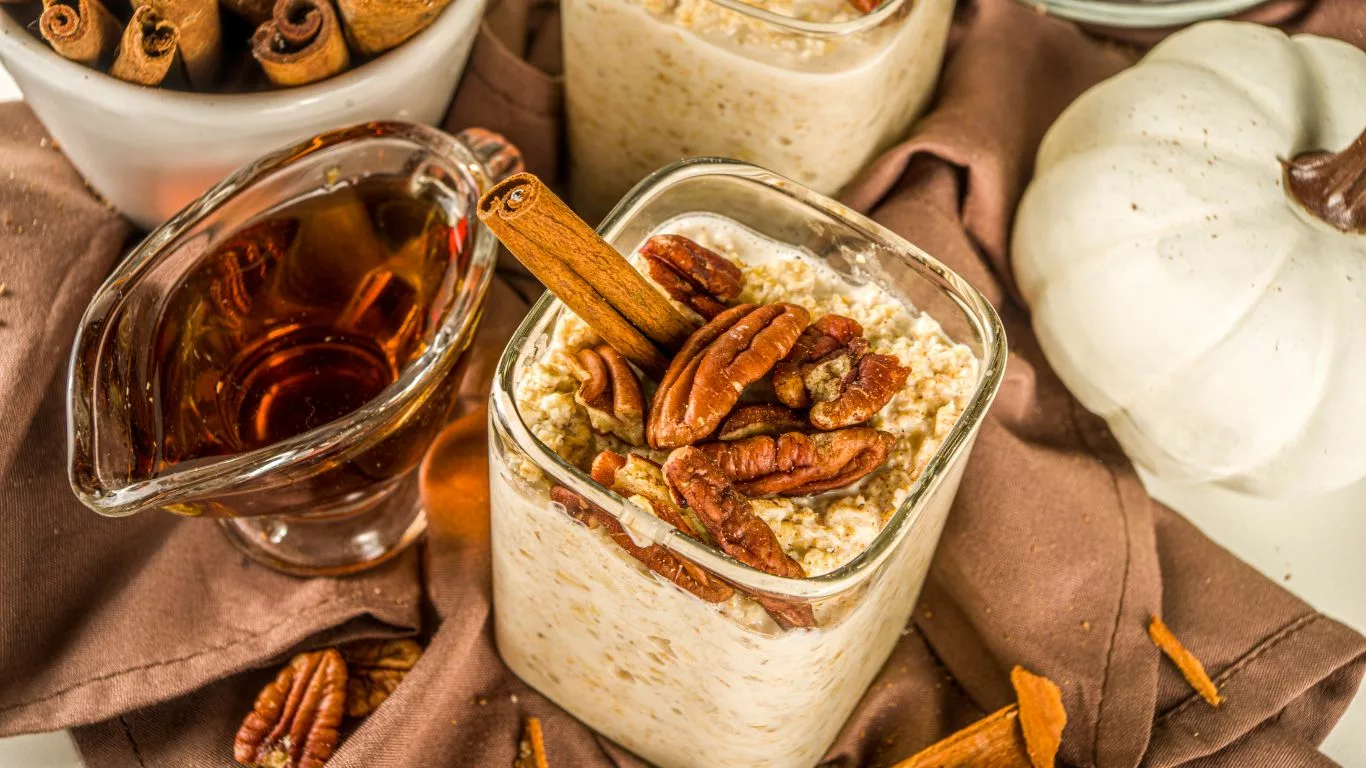Cheese and Cholesterol: Debunking Myths
Is Cheese Bad for Cholesterol? Discover the truth about cheese and cholesterol in this comprehensive article. Learn about its nutritional impact and recommendations for a heart-healthy diet.
Introduction
Cholesterol is a waxy, fat-like substance that is essential for the body’s normal functioning. It plays a vital role in various physiological processes, including cell membrane structure and hormone production. However, high levels of cholesterol, especially LDL cholesterol (low-density lipoprotein), can lead to the formation of plaques in the arteries, increasing the risk of heart disease and stroke. Given the potential impact of cholesterol on cardiovascular health, many individuals are curious about the effects of cheese consumption on their cholesterol levels. In this article, we will delve into the relationship between cheese and cholesterol, examining its nutritional composition and how it may influence cholesterol profiles.
Cheese and Cholesterol
Nutritional Composition of Cheese
Cheese is a beloved dairy product enjoyed worldwide for its diverse flavors and textures. It offers an array of essential nutrients that contribute to overall health. One of the primary components of cheese is protein, which is crucial for building and repairing tissues in the body. Additionally, cheese is an excellent source of calcium, phosphorus, vitamin A, and vitamin B12, all of which play critical roles in bone health, vision, and nerve function. However, despite these nutritional benefits, cheese also contains saturated fat and cholesterol, raising concerns about its potential impact on heart health.
Saturated Fat Content in Cheese
Saturated fat is the type of fat that can raise LDL cholesterol levels, making it commonly referred to as “bad” cholesterol. When consumed in excess, saturated fat can lead to the accumulation of cholesterol in the arteries, increasing the risk of atherosclerosis and heart disease. Different types of cheese contain varying amounts of saturated fat. Hard cheeses like cheddar and gouda typically have higher saturated fat content compared to softer cheeses like mozzarella and ricotta. For those looking to manage cholesterol levels, it is essential to be mindful of their saturated fat intake, including that from cheese.
Cholesterol Content in Cheese Varieties
As a dairy product, cheese contains dietary cholesterol. Dietary cholesterol comes from animal-based foods and can influence blood cholesterol levels. However, research indicates that dietary cholesterol has a more modest impact on blood cholesterol compared to saturated fat. Cheese contains varying amounts of cholesterol, with some varieties having higher levels than others. For instance, an ounce of cheddar cheese typically contains around 30 milligrams of cholesterol. Despite its cholesterol content, it’s important to consider other factors that influence cholesterol levels when assessing the impact of cheese on heart health.

Relationship Between Cheese and Cholesterol Levels
Studies Investigating the Effect of Cheese on Cholesterol
Research on the relationship between cheese consumption and cholesterol levels has yielded mixed results. Some studies suggest that high intake of cheese may lead to increased LDL cholesterol levels, while others propose no significant effect. It’s essential to interpret these findings in the context of overall dietary patterns and individual differences in response to specific foods. Factors such as genetic makeup, metabolism, and lifestyle habits can all influence how the body processes and responds to dietary fats and cholesterol.
Cheese and LDL Cholesterol (Low-Density Lipoprotein)
LDL cholesterol is often considered the “bad” cholesterol because high levels of LDL cholesterol are associated with an increased risk of cardiovascular diseases. Some research suggests that the saturated fat in cheese may contribute to higher LDL cholesterol levels. The liver produces LDL cholesterol, and when we consume foods high in saturated fat, the liver produces even more LDL cholesterol, potentially leading to cholesterol buildup in the arteries. However, it’s important to note that not everyone responds to saturated fat in the same way, and individual genetics can play a significant role in this process.
Cheese and HDL Cholesterol (High-Density Lipoprotein)
HDL cholesterol, often referred to as the “good” cholesterol, plays a crucial role in removing excess cholesterol from the bloodstream and transporting it to the liver for excretion. High levels of HDL cholesterol are associated with a reduced risk of heart disease. Some studies suggest that cheese consumption may not significantly impact HDL cholesterol levels. This could be attributed to the fact that dietary fats, including saturated fat, can influence HDL cholesterol differently in various individuals. Nonetheless, more research is needed to establish a clear connection between cheese consumption and HDL cholesterol levels.
Moderation and Portion Control
Like many foods, moderation is key when consuming cheese. For individuals concerned about their cholesterol levels, it’s essential to be mindful of their overall dietary choices, including the amount and frequency of cheese consumption. Instead of eliminating cheese entirely, consider enjoying it in moderation and as part of a balanced diet. Portion control is crucial, as even healthier options can contribute to calorie intake when consumed excessively. Pairing cheese with fiber-rich foods like whole grains, fruits, and vegetables can help balance the overall nutritional profile of a meal.

Health Benefits of Cheese Consumption
Nutrient Density and Essential Nutrients in Cheese
Despite the concerns surrounding its saturated fat and cholesterol content, cheese offers numerous health benefits due to its nutrient density. As previously mentioned, cheese is an excellent source of high-quality protein, which is essential for tissue repair and immune function. Additionally, its calcium content supports bone health, reducing the risk of osteoporosis and fractures, especially in older adults. Vitamin A, found in cheese, is essential for maintaining healthy vision and supporting the immune system. Lastly, vitamin B12, abundant in certain cheese varieties, plays a vital role in nerve function and red blood cell production.
Calcium and Bone Health
Calcium is a critical mineral required for building and maintaining strong bones and teeth. Including cheese in your diet can be an excellent way to meet your daily calcium needs, especially for those who may not consume other dairy products. Adequate calcium intake is essential throughout life to support bone density and reduce the risk of bone-related conditions, such as osteoporosis.
Probiotics and Gut Health
Some cheese varieties, particularly aged and fermented ones, contain probiotics—beneficial bacteria that support a healthy gut microbiome. A balanced gut microbiome is associated with improved digestion, enhanced immune function, and better overall well-being. Probiotics in cheese can help maintain the gut’s microbial diversity and contribute to digestive health.

Factors Influencing Cholesterol Response to Cheese
Individual Variations and Genetics
Individual responses to dietary components, including cheese, can vary based on genetics and metabolism. Genetic factors can influence how the body processes fats and cholesterol, leading to different cholesterol responses in different people. Some individuals may be more sensitive to the cholesterol-raising effects of certain foods, while others may experience minimal changes in cholesterol levels despite consuming them. Moreover, factors such as age, sex, and pre-existing health conditions can also influence the impact of cheese on cholesterol profiles.
Overall Diet and Lifestyle Factors
It’s important to consider the overall dietary pattern and lifestyle when evaluating the effects of cheese on cholesterol. A diet high in fruits, vegetables, whole grains, and lean proteins, and low in saturated and trans fats, is associated with improved cholesterol profiles and better heart health. Regular physical activity and weight management also play crucial roles in maintaining healthy cholesterol levels. Therefore, cheese consumption should be viewed within the context of an individual’s overall eating habits and lifestyle choices.

Recommendations for Cheese Consumption
General Dietary Guidelines for Cholesterol Management
For individuals concerned about their cholesterol levels, following general dietary guidelines for cholesterol management can be beneficial. Reducing the intake of saturated and trans fats, found in many processed foods and some animal products, is essential for maintaining healthy cholesterol levels. Emphasizing a diet rich in fruits, vegetables, whole grains, and lean proteins can promote heart health and help manage cholesterol levels.
Choosing Healthier Cheese Options
For cheese enthusiasts looking to manage their cholesterol levels, selecting healthier cheese options can make a difference. Low-fat or part-skim cheese varieties are available as alternatives to full-fat options and can significantly reduce saturated fat intake. Additionally, incorporating naturally low-fat cheeses like cottage cheese, feta, and mozzarella can still provide the delicious taste of cheese without excessive saturated fat content.
Incorporating Cheese into a Balanced Diet
Instead of focusing solely on individual foods, consider the overall composition of your diet. Incorporate cheese into meals that feature a variety of nutrient-rich foods. For instance, adding cheese to salads, whole-grain sandwiches, or omelets with vegetables can enhance taste and nutrition. Combining cheese with fiber-rich foods can also help slow down digestion, leading to better blood sugar control and improved satiety.

Conclusion
Summary of the Cheese and Cholesterol Relationship
The relationship between cheese consumption and cholesterol levels is complex and influenced by multiple factors. While cheese does contain saturated fat and cholesterol, its impact on cholesterol levels can vary from person to person. Genetic makeup, metabolism, overall dietary patterns, and lifestyle habits all play a role in how the body responds to cheese consumption. Moderation and portion control are crucial aspects of incorporating cheese into a heart-healthy diet.
Final Thoughts on Including Cheese in Your Diet
For cheese lovers, the good news is that you can still enjoy your favorite cheese while maintaining heart health. The key is to be mindful of portion sizes and consider the overall nutritional profile of your diet. By making informed choices and adopting a balanced approach to eating, you can savor the taste of cheese without compromising your cholesterol levels or overall well-being.
Appendices
References
- Anderson JW, Smith BM, Guynn RW, et al. Cholesterol-lowering effects of psyllium intake adjunctive to diet therapy in men and women with hypercholesterolemia: meta-analysis of 8 controlled trials. Am J Clin Nutr. 2000;71(2):472-479. https://pubmed.ncbi.nlm.nih.gov/10648260/
- Chen GC, Lv DB, Pang Z, et al. Dietary fiber intake and stroke risk: a meta-analysis of prospective cohort studies. Eur J Clin Nutr. 2013;67(1):96-100. https://pubmed.ncbi.nlm.nih.gov/23073261/
- Denke MA. Dietary fats, fatty acids, and their effects on lipoproteins. Curr Atheroscler Rep. 2006;8(6):466-471. https://pubmed.ncbi.nlm.nih.gov/17045072/
- Fulgoni VL, Keast DR, Auestad N, et al. Food sources of calcium, phosphorus, vitamin D, and potassium in the U.S. FASEB J. 2010;24(1 Suppl):601.6. https://faseb.onlinelibrary.wiley.com/doi/abs/10.1096/fasebj.24.1_supplement.325.1
- Gajanan SS, Sethi AS, Sabharwal RV, et al. Current and emerging therapies in the management of dyslipidemia. Curr Pharm Des. 2005;11(27):3439-3455. https://www.sciencedirect.com/science/article/abs/pii/S1050173820301122
- Huang Y, Li X, Wang M, et al. Dairy products intake and cancer mortality risk: a meta-analysis of 11 population-based cohort studies. Nutr J. 2015;14:91. https://pubmed.ncbi.nlm.nih.gov/27765039/
- Keys A, Anderson JT, Grande F. Serum cholesterol response to changes in the diet. IV. Particular saturated fatty acids in the diet. Metabolism. 1965;14(7):776-787. https://pubmed.ncbi.nlm.nih.gov/25286466/
- Kim Y, Je Y. Dairy consumption and risk of metabolic syndrome: a meta-analysis. Diabet Med. 2016;33(4):428-440. https://pubmed.ncbi.nlm.nih.gov/34066690/
- Mente A, de Koning L, Shannon HS, et al. A systematic review of the evidence supporting a causal link between dietary factors and coronary heart disease. Arch Intern Med. 2009;169(7):659-669. https://pubmed.ncbi.nlm.nih.gov/19364995/
FAQs
Does cheese raise cholesterol levels significantly?
While cheese does contain saturated fat and cholesterol, its impact on cholesterol levels can vary among individuals. Moderation and overall dietary patterns play a crucial role.
Are there healthier cheese options to consider?
Yes, opting for lower-fat or part-skim cheese varieties can help reduce saturated fat intake while still enjoying the nutritional benefits of cheese.
Can cheese be part of a heart-healthy diet?
Absolutely! When consumed mindfully and as part of a balanced diet, cheese can be included in a heart-healthy eating plan.
Disclaimer: The information provided in this article is for educational and informational purposes only. It is not intended as a substitute for professional medical advice, diagnosis, or treatment. Always seek the advice of your physician or another qualified healthcare provider with any questions you may have regarding a medical condition or dietary choices.

Camellia Wulansari is a dedicated Medical Assistant at a local clinic and a passionate health writer at Healthusias.com. With years of hands-on experience in patient care and a deep interest in preventive medicine, she bridges the gap between clinical knowledge and accessible health information. Camellia specializes in writing about digestive health, chronic conditions like GERD and hypertension, respiratory issues, and autoimmune diseases, aiming to empower readers with practical, easy-to-understand insights. When she’s not assisting patients or writing, you’ll find her enjoying quiet mornings with coffee and a medical journal in hand—or jamming to her favorite metal band, Lamb of God.






